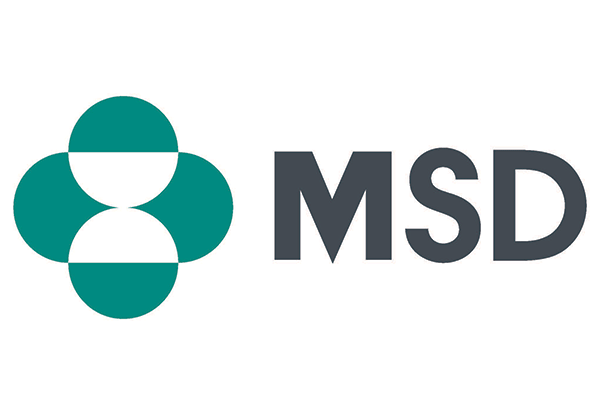TUMORE DELLA VESCICA – Pembrolizumab ha migliorato la sopravvivenza libera da malattia nel carcinoma uroteliale muscolo-invasivo dopo intervento chirurgico

Pembrolizumab ( Keytruda ) ha raggiunto l’endpoint primario di sopravvivenza libera da malattia ( DFS ) in alcuni pazienti con carcinoma uroteliale muscolo-invasivo ( MIUC ) dopo intervento chirurgico
Lo studio di fase 3 AMBASSADOR / KEYNOTE-123 che ha valutato Pembrolizumab ( Keytruda ), la terapia anti-PD-1, ha raggiunto uno dei suoi due endpoint primari di sopravvivenza libera da malattia ( DFS ) per il trattamento adiuvante di pazienti con malattia muscolo-invasiva localizzata carcinoma uroteliale ( MIUC ) e carcinoma uroteliale localmente avanzato rispetto all’osservazione.
Nel corso di una revisione dell’analisi intermedia pre-specificata condotta da un Comitato indipendente per il monitoraggio dei dati, Pembrolizumab ha dimostrato un miglioramento statisticamente e clinicamente significativo della sopravvivenza libera da malattia rispetto all’osservazione in questi pazienti dopo l’intervento chirurgico.
Lo studio continuerà a valutare il suo altro duplice endpoint primario, ovvero la sopravvivenza globale ( OS ).
Il profilo di sicurezza di Pembrolizumab in questo studio era coerente con quello osservato negli studi precedentemente riportati; non sono stati identificati nuovi segnali di sicurezza. I risultati saranno presentati in un prossimo incontro medico e discussi con le autorità di regolamentazione.
Fino alla metà dei pazienti con cancro della vescica sottoposti a intervento chirurgico andranno incontro a recidiva entro un anno, sottolineando la necessità di nuove opzioni terapeutiche in ambito adiuvante.
Pembrolizumab ha il potenziale di prevenire le recidive dopo l’intervento chirurgico nei pazienti con carcinoma uroteliale muscolo-invasivo localizzato o localmente avanzato.
Lo studio è stato sponsorizzato dal National Cancer Institute ( NCI ) degli Stati Uniti, parte del National Institutes of Health ( NIH ).
AMBASSADOR ( KEYNOTE-123 ) è uno studio di fase 3 randomizzato, in aperto che sta valutando Pembrolizumab rispetto all’osservazione per il trattamento adiuvante dei pazienti con MIUC localizzato e carcinoma uroteliale localmente avanzato. I doppi endpoint primari sono la sopravvivenza globale ( OS ) e la sopravvivenza libera da malattia ( DFS ), mentre gli endpoint secondari includono la sopravvivenza OS e la sopravvivenza DFS nei pazienti positivi e negativi a PD-L1. Nello studio sono stati arruolati 702 pazienti randomizzati a ricevere Pembrolizumab 200 mg per via endovenosa ogni tre settimane per un massimo di 18 cicli, oppure a sottoposti a osservazione.
Si stima che a circa 82.290 persone negli Stati Uniti verrà diagnosticato un cancro alla vescica nel 2023 e che circa il 7% dei casi di cancro alla vescica sono localmente avanzati al momento della diagnosi. A livello globale, ci sono stati circa 573.000 nuovi casi. Il cancro della vescica muscolo-invasivo è il cancro della vescica che si è diffuso nel muscolo profondo della parete vescicale, mentre il cancro uroteliale localmente avanzato è il cancro che inizia nelle cellule uroteliali e si diffonde dal punto di origine ai tessuti o ai linfonodi vicini. Nonostante l’intervento chirurgico, fino al 50% dei pazienti con cancro della vescica presenta una recidiva entro 12 mesi.
Pembrolizumab è una terapia anti-PD-1; agisce aumentando la capacità del sistema immunitario dell’organismo di contribuire a rilevare e combattere le cellule tumorali.
Pembrolizumab è un anticorpo monoclonale umanizzato che blocca l’interazione tra PD-1 e i suoi ligandi, PD-L1 e PD-L2, attivando così i linfociti T che possono colpire sia le cellule tumorali che le cellule sane.
ENGLISH VERSION
Keytruda ( Pembrolizumab ) has significantly improved disease-free survival as adjuvant therapy versus observation for patients with localized muscle-invasive urothelial carcinoma and locally advanced urothelial carcinoma
The Phase 3 AMBASSADOR trial ( KEYNOTE-123 ) evaluating Keytruda, an anti-PD-1 therapy, met one of its dual primary endpoints of disease-free survival ( DFS ) for the adjuvant treatment of patients with localized muscle-invasive urothelial carcinoma ( MIUC ) and locally advanced urothelial carcinoma versus observation.
At a pre-specified interim analysis review conducted by an independent Data Monitoring Committee, Keytruda has demonstrated a statistically significant and clinically meaningful improvement in DFS versus observation in these patients after surgery.
The trial will continue to evaluate its other dual primary endpoint of overall survival ( OS ).
The safety profile of Keytruda in this trial was consistent with that observed in previously reported studies; no new safety signals were identified.
Up to half of patients with bladder cancer who undergo surgery will experience recurrence within a year, underscoring the need for new treatment options in the adjuvant setting.
These positive results highlight the potential of Keytruda to prevent recurrence after surgery for patients with localized muscle-invasive or locally advanced urothelial carcinoma.
This trial was sponsored by the U.S. National Cancer Institute ( NCI ), part of the National Institutes of Health.
AMBASSADOR ( KEYNOTE-123 ) is a randomized, open-label phase 3 trial evaluating versus Keytruda observation for the adjuvant treatment of patients with localized MIUC and locally advanced urothelial carcinoma. The dual primary endpoints are OS and DFS, and secondary endpoints include OS and DFS in PD-L1 positive and negative patients.
The trial enrolled 702 patients who were randomized to receive Keytruda ( 200 mg intravenously every three weeks for up to 18 cycles ) or undergo observation.
It is estimated that approximately 82,290 people in the U.S. will be diagnosed with bladder cancer in 2023, and approximately 7% of bladder cancer cases are locally advanced at diagnosis. Globally, there were approximately 573,000 new cases. Muscle-invasive bladder cancer is bladder cancer that has spread into the deep muscle of the bladder wall, and locally advanced urothelial cancer is cancer that begins in the urothelial cells and has spread from where it started to nearby tissue or lymph nodes. Despite surgery, up to 50% of patients with bladder cancer experience recurrence within 12 months.
Keytruda is an anti-programmed death receptor-1 ( PD-1 ) therapy that works by increasing the ability of the body’s immune system to help detect and fight tumor cells.
Keytruda is a humanized monoclonal antibody that blocks the interaction between PD-1 and its ligands, PD-L1 and PD-L2, thereby activating T lymphocytes which may affect both tumor cells and healthy cells.
Urothelial Carcinoma
Keytruda, in combination with Enfortumab vedotin, is indicated for the treatment of patients with locally advanced or metastatic urothelial carcinoma ( mUC ) who are not eligible for Cisplatin-containing chemotherapy.
This indication is approved under accelerated approval based on tumor response rate and durability of response. Continued approval for this indication may be contingent upon verification and description of clinical benefit in the confirmatory trials.
Keytruda, as a single agent, is indicated for the treatment of patients with locally advanced or metastatic urothelial carcinoma ( mUC ): who are not eligible for any Platinum-containing chemotherapy, or who have disease progression during or following Platinum-containing chemotherapy or within 12 months of neoadjuvant or adjuvant treatment with Platinum-containing chemotherapy.
Keytruda, as a single agent, is indicated for the treatment of patients with Bacillus Calmette-Guerin-unresponsive, high-risk, non-muscle invasive bladder cancer ( NMIBC ) with carcinoma in situ with or without papillary tumors who are ineligible for or have elected not to undergo cystectomy.
Xagena Oncologia
MelanomaOnline.net | OncoGinecologia.net | OncoImmunoterapia.net | OncologiaMedica.net | OncologiaOnline.net | TumoriOnline.net | TumoriRari.net




